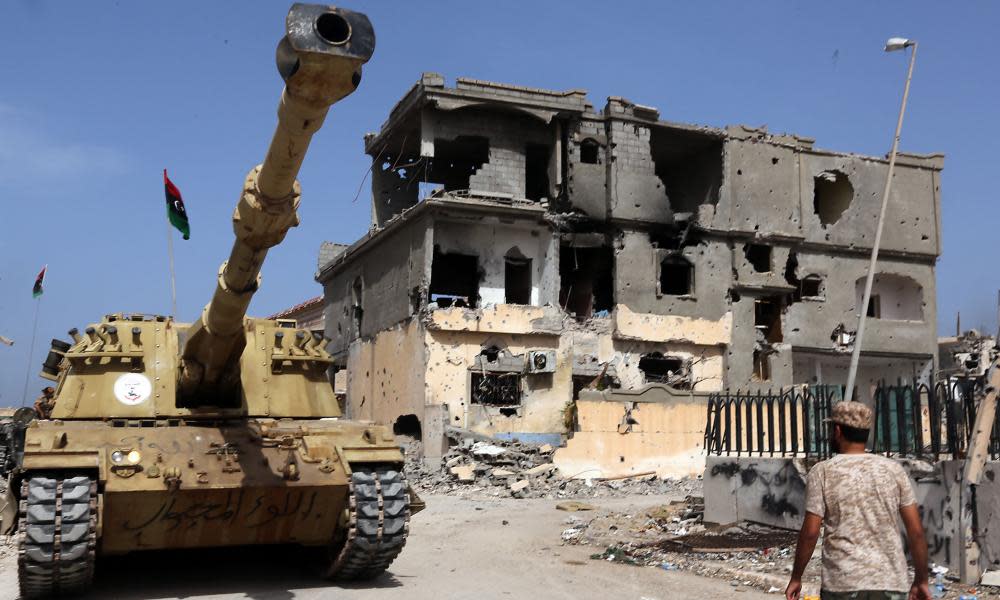David Cameron's Libya campaign criticised by commission he chaired

A commission chaired by David Cameron has published a report criticising the British and French intervention that ousted Muammar Gaddafi from Libya in 2011, undertaken when Cameron was prime minister.
The report by the Commission on State Fragility, Growth and Development says a rush to elections, or “pop-up democracy”, in the wake of the intervention was a mistake and may have contributed to Libya’s current fragile state.
Cameron himself has never criticised the intervention, claiming up to now that the west gave the Libyans the chance to take a democratic path, which they did not take.
The report says that multi-party elections held in Iraq after Saddam Hussein was ousted by a US-led invasion did “not resolve the abuse of power so much as change it”.
It adds: “Variants of the strategy exemplified in Iraq have been implemented again and again. Colonel Gaddafi in Libya, President Mubarak in Egypt, President Mobutu in Zaire and oppressive rule over South Sudan and the Taliban in Afghanistan: the ousting of all these regimes have been followed by ‘pop-up democracy’. Yet none of these societies duly became flourishing democracies. Instead each disintegrated into varied degrees of disorder.”
Cameron himself makes a similar point in a Guardian opinion article summarising the report, without specifically referencing his role in the Libyan intervention. The report, he writes, “concludes that the building blocks of democracy – the rule of law, checks and balances, the protection of minorities – matter more than the actual act of holding an election, important though that seminal moment of democracy can be”.
“The report argues that the rush to multi-party elections is often a mistake,” he adds. “Far better to take time in resolving disputes and conflicts, forging a genuine national consensus on power-sharing, and putting in place checks and balances that may help to prevent another slide towards violence and state failure.”
Cameron’s remarks do not mean he regards the whole Libyan intervention as a mistake, though they draw attention to the fact that, as in Iraq, post-conflict planning was misguided in pushing for elections before seeking reconciliation. The same mistake was made even though the Iraq disaster prompted Whitehall to undertake a thorough re-evaluation of interventions.
Parliamentary elections in Libya were held in the summer of 2012, within a year of Gaddafi’s death in October 2011. Ever since those elections, factional and tribal disputes have left the country in a state of chaos, with a faultline between between east and west. Abuse of migrants trying to make their way north into Europe is rife. The arrival of thousands of people in Italy via the Mediterranean helped fuel the success of populist parties in the Italian election in March.
Barack Obama privately referred to the post-conflict era in Libya as a “shit-show”, and told the Atlantic magazine in 2016: “When I go back and I ask myself what went wrong … there’s room for criticism, because I had more faith in the Europeans, given Libya’s proximity, being invested in the follow-up.” Cameron in particular “became distracted by other things”, Obama said.

 Yahoo News
Yahoo News 
